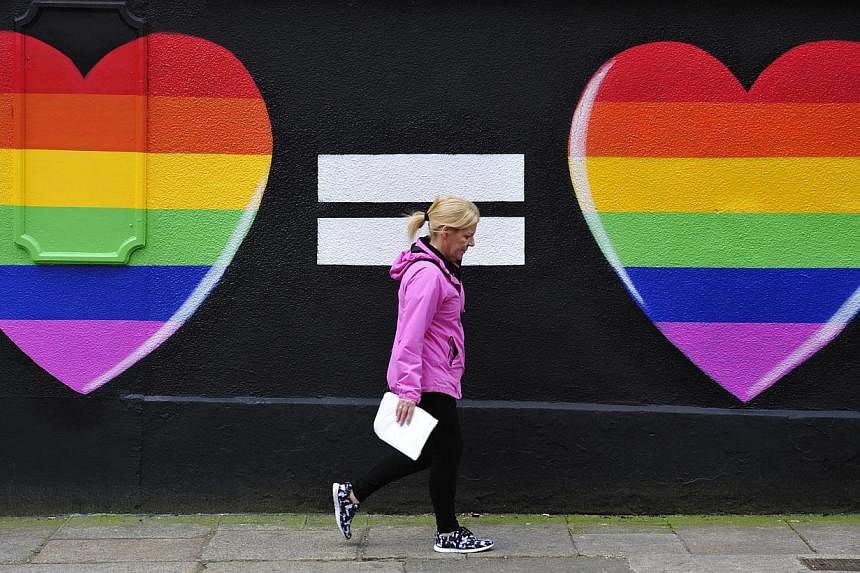DUBLIN, May 23 (Reuters) - Ireland appears to have voted heavily in favour of allowing same-sex marriage in a historic referendum that marks a dramatic social shift in the traditionally Catholic country, government ministers and opponents of the bill said on Saturday.
Final results are not expected until later in the day in a vote that would make Ireland the first country to adopt same-sex marriage via a popular vote, just two decades after the country decriminalised homosexuality.
State broadcaster RTE said the victory appeared to be overwhelming and government minister Kevin Humphreys predicted the margin would be two-to-one. "I think it's won," Equality Minister Aodhan O'Riordain told Reuters at the main count centre in Dublin. "The numbers of people who turned out to vote is unprecedented. This has really touched a nerve in Ireland today."
One of the main opponents of the Bill conceded minutes after the first boxes were opened. "Everyone seems to be predicting a 'yes'... and that seems to be the case at the moment. It's disappointing," said Mr John Murray from Catholic think-tank the Iona Institute. Another leading campaigner against gay marriage conceded defeat in as the official count took place. Mr David Quinn, a leading "No" campaigner and director of the Iona Institute, told national broadcaster RTE it was "obviously a very impressive victory for the 'Yes' side".
Meanwhile, "Yes" campaigners embraced at the main count centre as the high approval rate became clear. "It's very hard for it to sink in, inside screaming and jumping already but I'm just waiting for that exact moment when I can say it," said Mr Ger O'Keefe, 27, a gay 'Yes' campaigner from Waterford.
Gay marriage is backed by all political parties, championed by big employers and endorsed by celebrities, all hoping it will mark a transformation in a country that was long regarded as one of the most socially conservative in Western Europe.
Only a third of the country backed the decriminalisation of gay sex for men over 17 in 1993, according to a poll at the time. "This is a big placard from the people of Ireland to the rest of the world saying this is the way forward," said Mr David Norris, who began a campaign for gay rights in the late 1970s.
The Catholic Church, whose doctrine teaches homosexuality is a sin, limited its "No" campaigning to sermons to its remaining flock, a marked contrast with active public opposition to similar moves in France and elsewhere.
Instead, lay groups have led the opposition, raising concerns over parenthood and surrogacy rights for gay couples. Many believe the recognition of the legal rights of same-sex couples in 2009 is sufficient.

